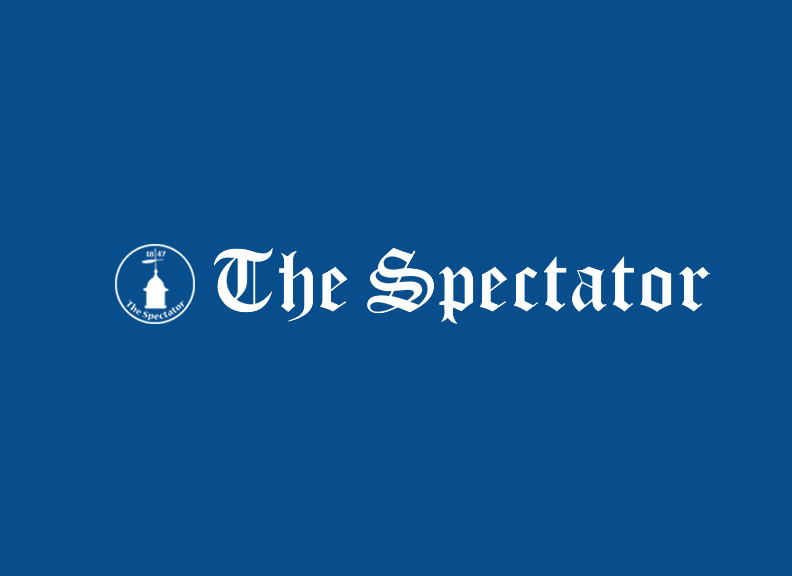
As
readers can clearly delineate from the
front page of this week’s
Spectator
, notions of victimhood abound on this campus, even going as far as to infiltrate spaces, such as the Little Pub, which most students would consider to be mundane, apolitical, and in no way “problematic.” Yet, according to the group known as “PUB POWER”, the Pub’s lunch crowd is reflective of white, upper class, able-bodied male hegemony. My note here is not to apply a normative ruling on the protest itself, but instead to comment on and critique inconsistencies and broad applications of victimhood with which I take issue. While I am prepared for the promised-influx of irate, accusatory emails from dissenting students and faculty alike, the co-opting of my identity by a separate movement in the pursuit of aims I do not necessarily support is fundamentally misguided and worth addressing.
The contemporary campus cult of intersectionality asserts that oppression and discrimination results from an individual’s various social identities and that those with certain combinations of identities are more likely to be oppressed than others. While there is no doubt that a disabled black woman is likely to experience more oppression than an able-bodied white male, elite college students continue to apply the concept of intersectionality to their own activism in a way which derides the individual agency of the historically-oppressed peoples they aim to represent. PUB POWER is guilty on this charge.
As chronicled in Will Kaback’s journalistically-unbiased front page story, female PUB POWER activists, despite focusing on the perceived Pub-based exclusion of women, repeatedly and off-handedly apply their victimhood to additional groups without any particular justification. The group asserts that the white, upper-class, male presence “makes women, alongside other LGBTQIA+ and POC (people of color) members of our community feel inferior” and “unwelcomed.” The phrase “alongside other” is reflective of this misapplication of the now-canonical teachings of intersectionality. While the Pub issue is in fact a women’s issue, intersectional thinking requires that women’s victimhood be extended to “the oppressed” writ large, including POC and LGBTQIA+ folks. As an unabashedly gay man who regularly frequents Pub Lunch and similarly-predominantly male, often-straight spaces, I object to my externally-enforced implicit designation as a victim of the upper-class, white, male frequenters of the Pub.
Note than in Kaback’s article, the words “straight” and “racist” are not referenced by activists, not even once. There is no assertion that the white men of the Pub are in anyway homophobic or racist. Instead, it is apparently implied that white men, due to the intersectional hierarchy of victimhood, are, by default, oppressors. Their mere presence, despite the lack of any actions indicating bias, is, for the activists, apparently enough to trigger fears of inferiority, exclusion, and, ultimately, oppression. Due to the absurd and oft-unquestioned misapplication of intersectionality, the purported plight of the Pub Lunch-frequenting woman becomes the plight of every oppressed group, including POC and LGBTQIA+ people, despite the fact that no active or even implicit bias towards them is referenced. While the female activists may feel “inferior, unwelcomed, and outnumbered” in a pub of upper-class white men, I have no such feelings. My conceptions of self-worth and welcomeness are not externally-determined reactions to the racial, gender, or class diversity of my contextual surroundings.
PUB POWER repeatedly asserts that their activism is aimed to support women; the overwhelmingly female leadership and membership of the group reflects such an ambition. By largely including only women in the movement, yet still broadly asserting that you speak for LGBTQIA+ people and POC, based upon a casual reference, these activists diminish the agency of these subsidiary folks they aim to represent. Clearly, these activists are aware of their inconsistency, as they do not reference religious minorities, because, obviously, their female-focused protest has nothing to do with the plight of Muslims, Jews, or any other marginalized religious group. The PUB POWER protest addresses a specific instance of purported oppression of women, not male-identifying LGBTQIA+ people, POC, nor religious minorities. While the inconsistency is realized in reference to religious minorities, the female-led group implicates LGBTQIA+ people and POC in a protest many within these communities want no part of. We have our own voices and do not all consent to being identified with your female-first, Pub-focused activism. Speaking as a gay man, I do not appreciate my inclusion in perceived oppression which I do not identify with. In sum, including communities whom you do not represent in your activism, in aims to satisfy intersectional notions of legitimacy, is cheap, tokenistic, and lazy.

















